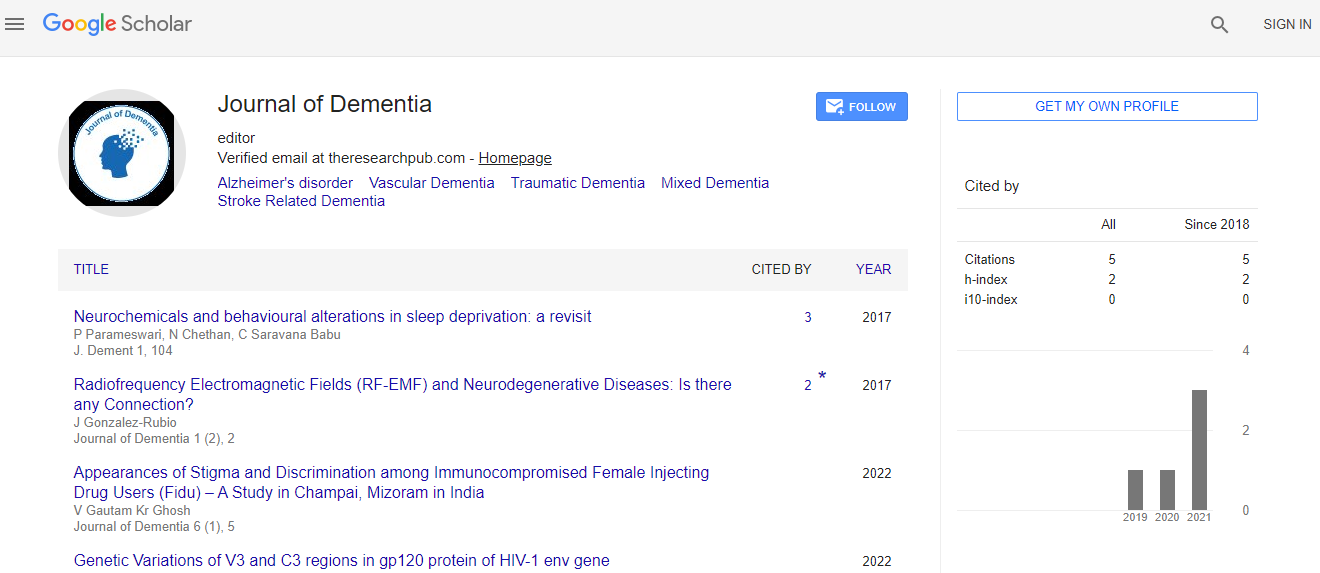Cognitive Decline in Aging Populations: Early Detection and Intervention Strategies
*Corresponding Author: Kenji Nakam, Department of Neurobiology, Jagiellonian University Medical College, Poland, Email: nakenjih769@gmail.comReceived Date: Jan 01, 2025 / Published Date: Jan 30, 2025
Citation: Kenji N (2025) Cognitive Decline in Aging Populations: Early Detectionand Intervention Strategies J Dement 9: 255.
Copyright: © 2025 Kenji N. This is an open-access article distributed under theterms of the Creative Commons Attribution License, which permits unrestricteduse, distribution, and reproduction in any medium, provided the original author andsource are credited.
Abstract
Cognitive decline in aging populations is a major public health concern, leading to impaired functioning and a decreased quality of life. Early detection and intervention strategies are crucial for mitigating its impact, enabling timely therapeutic approaches, and enhancing the quality of life for affected individuals. This paper discusses the underlying mechanisms of cognitive decline, focusing on age-related neurodegenerative diseases such as Alzheimer’s and Parkinson’s. Various diagnostic tools, including neuroimaging, biomarkers, and cognitive testing, are reviewed for their efficacy in early detection. The role of lifestyle interventions, pharmacological treatments, and cognitive training in slowing the progression of cognitive decline is examined. The paper emphasizes the importance of personalized, multi-disciplinary approaches to address the complex nature of cognitive impairment. By integrating early diagnostic methods and preventive strategies, it is possible to improve the outcomes for aging individuals and reduce the overall burden of cognitive decline in society.

